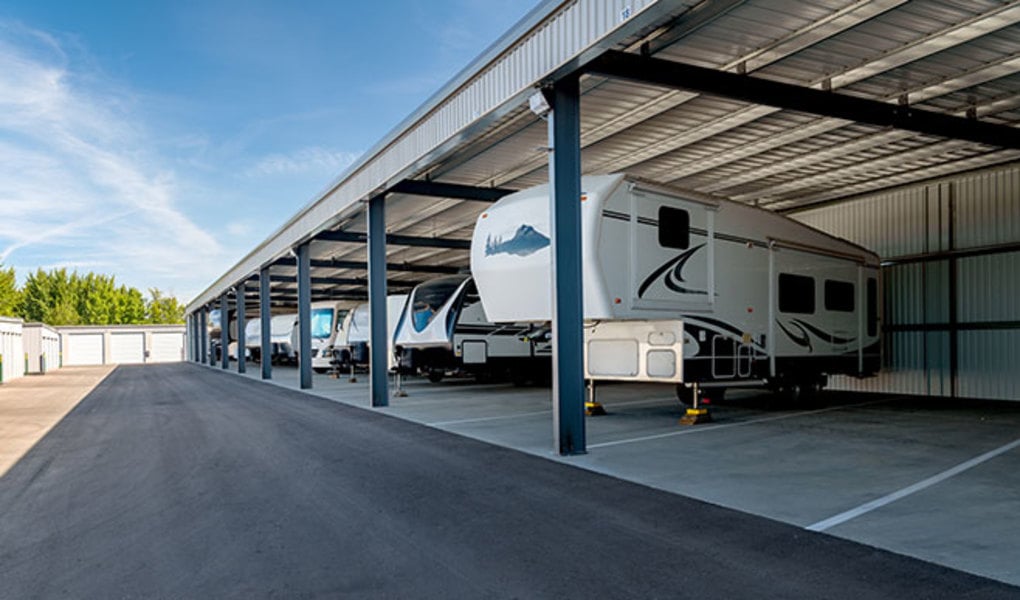Renting a vehicle storage unit can help you protect your boat or motorcycle during the winter months, have space for a project car, or keep your RV safe when you're not on vacation. But how much does it cost to do those things, and which type and size unit should you choose? There are a lot of factors to consider, to ensure you're getting the best unit for your specific vehicle storage needs. Here's what you need to know about the cost of a vehicle storage unit.
Storage Prices Can Depend on Location
If you live in a big city with limited space, or you're located in a high cost of living area, you'll likely have vehicle storage units with higher prices than other areas. That's to be expected, and doesn't mean that you can't find good deals. There will still be sales, discounts, and opportunities to pay less when you shop around. Just be aware that a unit in downtown Chicago, for example, will typically cost more than the same size unit in rural Iowa.
Size is a Factor for Storage Unit Costs
Another factor in the cost is the vehicle storage units size. You might find a small unit that will house a motorcycle or ATV for $45 or $50 per month, but you won't find a unit for that price if you're looking to store an RV or a large boat. All other things being equal, larger spaces will cost more than smaller spaces, and can cost up to $450 per month on average, with some boat and RV spaces coming in higher. It's important that you're getting a unit with enough room to safely store your vehicle, too. Ideally, you should be able to walk all the way around it, but you don't need a lot of extra room beyond that.
The Type of Storage is Another Consideration
There are vehicle storage units that look like the self-storage units you're probably already familiar with, and that you might use for household goods or business inventory. If that's not the right type of unit for your needs, though, there are carport-style storage options and open lot options, too. Which type of storage you choose for your vehicle will depend on the size of it and the kind of protection it needs. Some vehicles need to stay out of the elements more than others.
While vehicles are technically designed to be outside, you may have a car you're restoring or another type of vehicle that could be damaged by sitting outdoors for too long. Rather than take the chance on needing additional maintenance or repair, it's better to keep it in a storage unit that can be closed tightly. For other vehicles that aren't at risk from sun, wind, rain, and more, an open-but-covered option or a completely open space may be all you need.
Some Vehicles Need Climate Control
Climate-controlled vehicle storage can help your cars, motorcycles, jet skis, or other vehicles last longer. Having a space that's not subjected to temperature extremes, too much humidity, or an extremely dry feel can reduce the chances of paint damage, mold growth and musty odors, and other problems that could occur. Most people don't use climate-controlled vehicle storage because it can cost 30% to 50% more than standard vehicle storage, but it can be worth the cost.
For example, if you have a collector car that you're restoring or have restored, you definitely want to keep it looking as good as possible. Storing it most of the time will protect it from the everyday issues vehicles can face, and keeping it in climate-controlled storage further enhances the level of protection you're giving it. Most other types of vehicles aren't as sensitive to temperature and humidity changes, but you can still use climate-controlled spaces if that's your preference. Also these units are rarely available so you will have to do a lot of searching online or otherwise.
Consider Insurance Coverage and Costs
While the cost of the vehicle storage unit itself might be all you're considering, don't forget there are other fees you may need to pay. Insurance for your vehicle is still important, and you may be able to pay less if the car or other vehicle isn't being driven. If it's stored long-term, ask your insurance company about options that could help you save. You should also talk to the storage facility about their insurance, to make sure it will cover and protect your vehicle while it's there.
The Bottom Line on Vehicle Storage Affordability
Vehicle storage costs can typically range from $45 to $450 per month, with climate-controlled spaces costing between 30% and 50% more than non-climate-controlled options. The size, type, and location all matter, and it's important to make sure you have the right insurance, as well. If you don't have proper coverage, or the facility doesn't have enough to protect your vehicle, that could put you at risk. Choosing a safe, secure facility will give you peace of mind.


